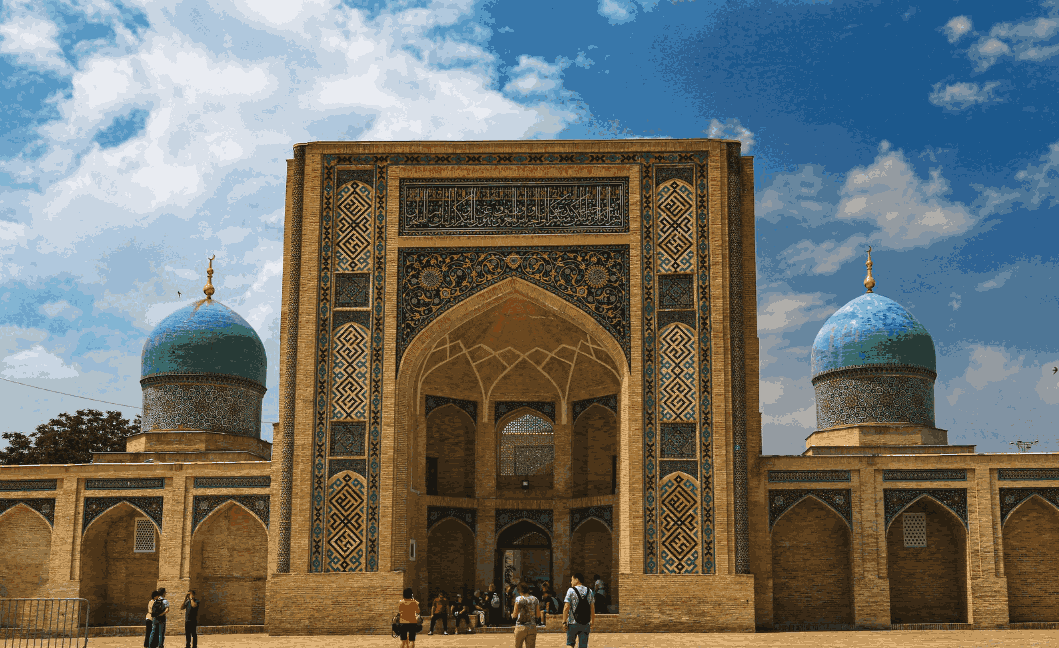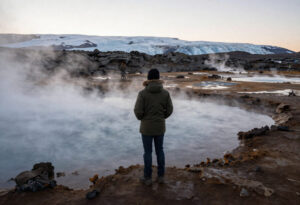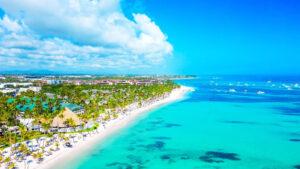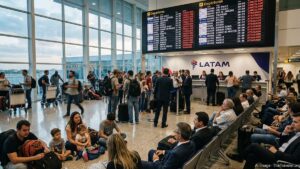Travelling during Ramadan can be a unique experience, especially if you’re visiting a Muslim-majority country. The atmosphere is different, with bustling markets before sunset, quiet streets during the day, and a spiritual energy that fills the air. However, if you’re unfamiliar with Ramadan rules, it’s important to know what to expect, what is allowed, and what is considered disrespectful during this sacred month.
Understanding Ramadan
For those wondering whats Ramadan, it is the ninth month of the Islamic calendar and a time of fasting, prayer, reflection, and community. Muslims around the world observe it by abstaining from food, drink, smoking, and other physical needs from dawn until sunset.
People often ask, is it Ramadan right now? Since the Islamic calendar follows the lunar cycle, the exact dates change every year.
The purpose of Ramadan is to develop self-discipline, spiritual growth, and empathy for those less fortunate. For non-Muslims travelling to a country where it is observed, understanding rules for Ramadan can help ensure a respectful and smooth experience.
What Are the Rules of Ramadan?
Many visitors wonder what are the rules of Ramadan and what can you not do during Ramadan. The primary rule is fasting from dawn until sunset. This means no eating, drinking, smoking, or chewing gum in public during daylight hours.
What can’t you do during Ramadan? Aside from fasting, Muslims also avoid negative behaviours such as arguing, gossiping, and engaging in excessive entertainment. It is a time for prayer, charity, and self-reflection.
If you’re a beginner, you might be asking about Ramadan rules for beginners. These include waking up early for suhoor (the pre-dawn meal), abstaining from food and drink all day, breaking the fast with dates and water at sunset, and engaging in extra prayers and acts of kindness.
Rules about Ramadan are different for those who are travelling, sick, pregnant, or elderly. Islam provides exceptions for people who may struggle with fasting due to their circumstances.
Eating and Drinking During Ramadan
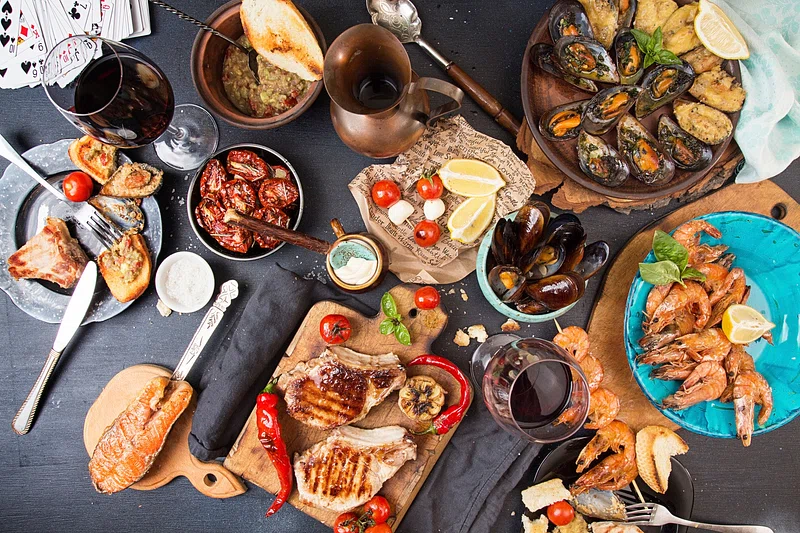
A common question travellers ask is can you eat during Ramadan? The answer depends on where you are. In Muslim-majority countries, eating or drinking in public during daylight hours is considered disrespectful. Some places even have laws against it, so always check local customs.
If you’re wondering when can Muslims eat during Ramadan, the fast is broken at sunset with iftar, a meal that usually begins with dates and water, followed by a larger feast. When do you eat during Ramadan? Before dawn, Muslims eat suhoor, which helps sustain them throughout the day.
People often ask when can u eat during Ramadan, and the answer is simple: after sunset and before dawn. If you’re not fasting, it’s polite to eat in private or in designated areas, as public restaurants may have limited service during the day.
What do you do during Ramadan as a traveller? You can experience the local culture by joining an iftar meal, visiting a mosque, or simply observing the traditions around you. Many hotels and restaurants offer special iftar buffets, which are a great way to enjoy the festive atmosphere.
Fasting While Traveling
If you’re on the move, you might wonder about fast while travelling or fasting while travelling. Islam allows travellers to postpone their fast and make up for the missed days later. This is because travel can be exhausting, and maintaining a fast while constantly moving can be difficult.
Fasting travelling rules apply to those covering long distances, typically over 50 miles from their home. However, many devout Muslims still choose to fast if they feel capable.
Fasting during travel is a personal decision, and those who break their fast can either make up the day later or provide food for the less fortunate as an alternative.
What is Allowed and Not Allowed During Ramadan?
Understanding what is allowed and not allowed during ramadan helps travelers navigate this time respectfully. Eating, drinking, and smoking in public during daylight hours are generally discouraged or prohibited. Modest dress is also expected, especially in conservative regions.
Many wonder can you drink alcohol during ramadan after sunset? In some Muslim-majority countries, alcohol sales are restricted, even in the evenings. However, in more liberal cities, alcohol may still be available in hotels and private establishments.
Another common question is what happens if you eat during ramadan in public. In some places, this can result in a fine or even legal action. In others, it’s simply seen as disrespectful. Being aware of ramadan restrictions and rules during ramadan will help you avoid any cultural misunderstandings.
Prayer and Religious Observances
During this month, Muslims spend more time in prayer and at mosques. If you’re wondering what do Muslims do during the Ramadan, they dedicate more time to reading the Quran, performing extra prayers, and giving to charity.
What to do in the month of ramadan as a visitor? You can visit mosques, observe the beautiful call to prayer, and even participate in community iftars. Respect the quiet moments of prayer, especially in more religious settings.
What Muslim do during Ramadan is deeply spiritual, and as a traveller, respecting their practices will make your experience more meaningful.
When and Where to Travel During Ramadan
Not all countries observe ramadan in the same way. If you’re curious about countries with ramadan, it’s widely observed in the Middle East, North Africa, and parts of Asia. However, some Muslim-minority countries, such as Indonesia or India, have local variations of how it’s practiced.
A key question travelers ask is when ramadan this year—in 2024, it starts in early March and ends in early April. What night of ramadan is it varies depending on the lunar calendar, and the final ten nights are considered the most spiritually significant.
When do muslims eat during ramadan is crucial for visitors planning their schedules. Many shops and restaurants will open later in the day and stay open late into the night. Cities come alive after sunset, with bustling food stalls, markets, and social gatherings.
Tips for Travelers During Ramadan
- Be Mindful of Eating and Drinking in Public – Even if it’s not illegal, it’s respectful to avoid eating in front of those who are fasting.
- Plan Your Meals Around Iftar – Restaurants may be closed during the day but will have incredible buffets and meals at sunset.
- Respect Prayer Times – Be aware that businesses may close briefly for prayer, especially during the last ten days of ramadan.
- Dress Modestly – In more conservative areas, covering shoulders and knees is appreciated.
- Join an Iftar Meal – Many communities welcome non-Muslims to join them for iftar, which is a great way to experience local hospitality.
- Expect Different Business Hours – Government offices, banks, and even tourist attractions may operate on reduced hours.
- Learn Basic Greetings – A simple “Ramadan Mubarak” (Happy Ramadan) is a kind and respectful way to acknowledge the occasion.
Final Thoughts on Traveling During Ramadan
Traveling during ramadan can be an enriching experience if you understand and respect the traditions. Whether you’re visiting a Muslim-majority country or just experiencing the month in a diverse city, being mindful of rules of ramadan fasting and daily practices will enhance your trip.
If you’re ever unsure about what to do for ramadan as a visitor, just observe and follow the lead of the locals. The month is about patience, gratitude, and community—values that can be appreciated by all, regardless of faith.

